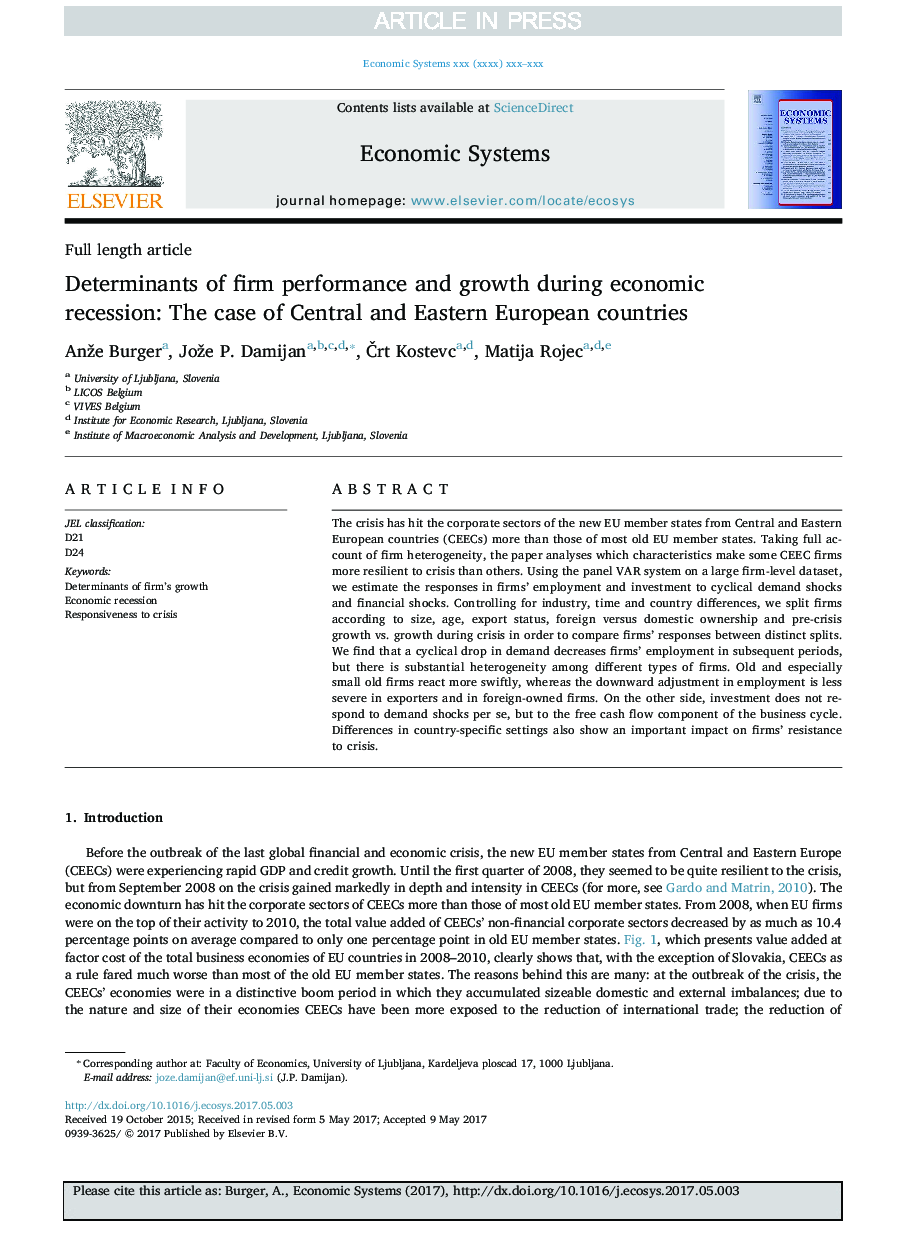| Article ID | Journal | Published Year | Pages | File Type |
|---|---|---|---|---|
| 7348014 | Economic Systems | 2017 | 22 Pages |
Abstract
The crisis has hit the corporate sectors of the new EU member states from Central and Eastern European countries (CEECs) more than those of most old EU member states. Taking full account of firm heterogeneity, the paper analyses which characteristics make some CEEC firms more resilient to crisis than others. Using the panel VAR system on a large firm-level dataset, we estimate the responses in firms' employment and investment to cyclical demand shocks and financial shocks. Controlling for industry, time and country differences, we split firms according to size, age, export status, foreign versus domestic ownership and pre-crisis growth vs. growth during crisis in order to compare firms' responses between distinct splits. We find that a cyclical drop in demand decreases firms' employment in subsequent periods, but there is substantial heterogeneity among different types of firms. Old and especially small old firms react more swiftly, whereas the downward adjustment in employment is less severe in exporters and in foreign-owned firms. On the other side, investment does not respond to demand shocks per se, but to the free cash flow component of the business cycle. Differences in country-specific settings also show an important impact on firms' resistance to crisis.
Keywords
Related Topics
Social Sciences and Humanities
Economics, Econometrics and Finance
Economics and Econometrics
Authors
Anže Burger, Jože P. Damijan, Ärt Kostevc, Matija Rojec,
